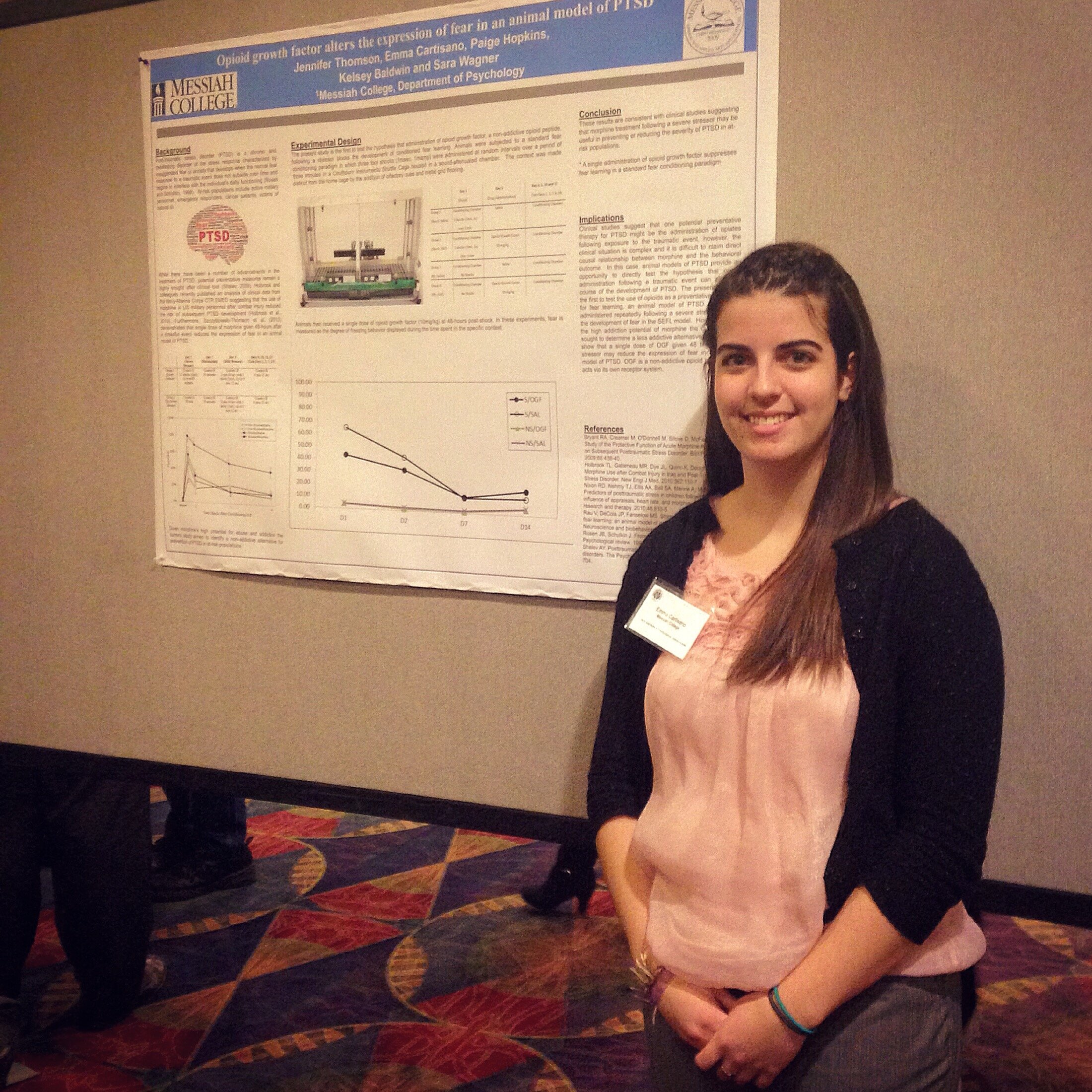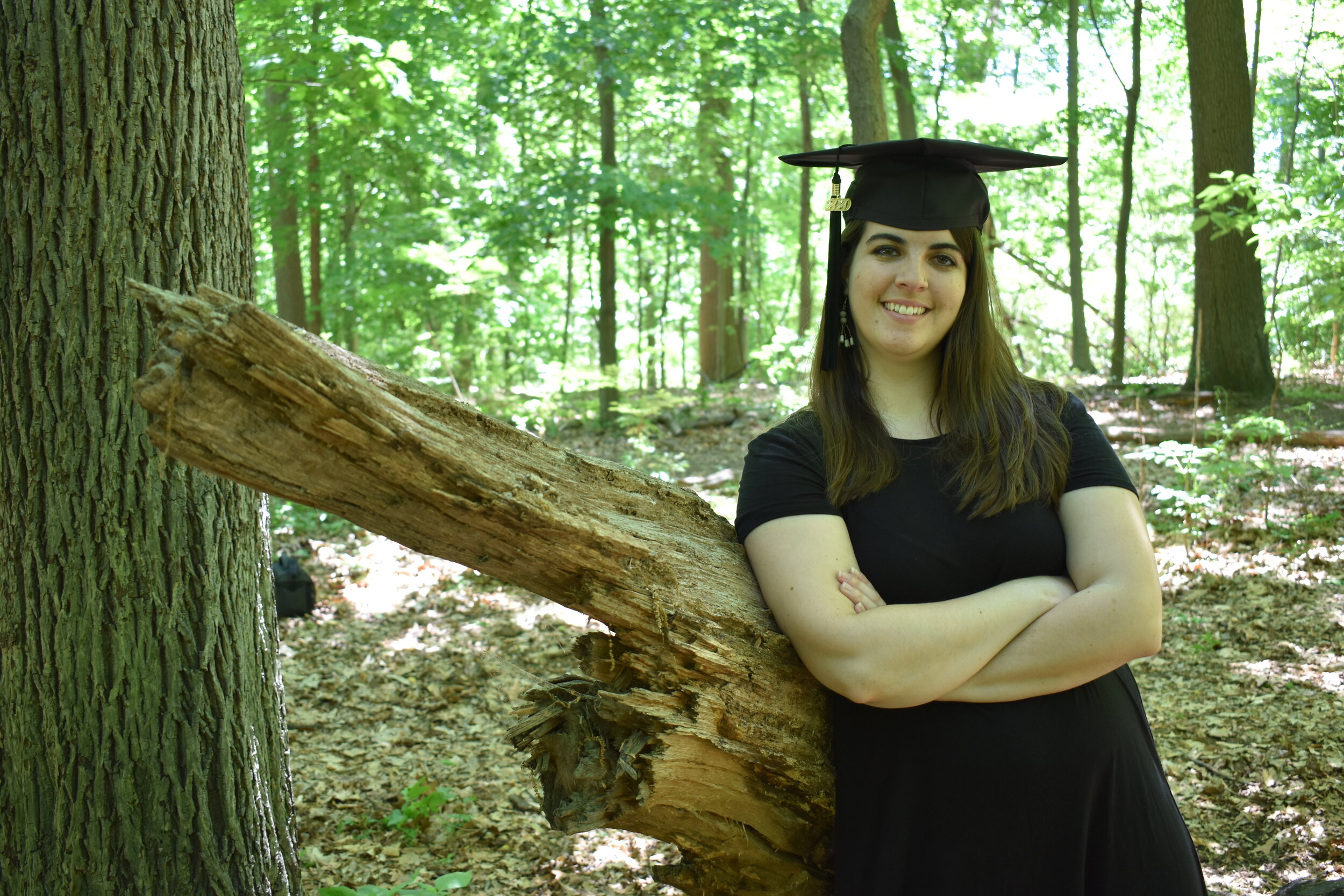From Neuroscience to Higher Education: A Personal Narrative
My brothers and I circa summer 2016
I was privileged to grow up in a well-educated, middle class family. My father has an MBA and works as a highly-sought computer consultant—one of the very best in his software industry, and my mother has a doctorate in Medical Anthropology. All my life, I was surrounded by excellence. I perceived that college was not an option, but a requirement. I intended to climb the educational ladder until I was at the very top of my field.
When it came time to select a college, I ultimately decided on Messiah College—not because of the courses, but because of the opportunities to take my learning outside of the classroom and truly be nurtured into a well-rounded adult, grounded in my faith, fully ready to function in society four years later. I felt accepted by Messiah’s community every time I set foot on campus. From my admissions counselor to the student tour guide to the dining services employees: everyone made me feel welcome. I recognized that this environment would enable me to process my thoughts and grow as an individual and an academic.
This materialized from the start, as one of my first assignments was to write a statement about how I perceive science and faith to intersect after discussing historical resolutions to the Creation-Evolution debate. Immediately, I knew this was a place where I could ask questions without fear of judgment; my professors and classmates together cultivated an educational community that would train a new class of leaders to think independently and engage intelligently with the world around us. Messiah College promoted freedom—freedom to choose a course of study and freedom to ask questions—as we explored interests and career options (Delbanco, 2012).
I most valued this freedom during my senior year as I came back from studying abroad. Questions about my career path filled my mind. I sat down with my former neuroscience professor to ask about the value in taking a gap year to explore my interests and gain additional experience, as opposed to continuing straight through my graduate education while I still had the momentum from my undergraduate years. When I relayed this conversation and my thoughts to my parents, I was shocked to discover they both took time off before pursuing their graduate degrees. In my mind, that wasn’t an option. I had incorrectly assumed that I was letting professors and family down by taking a break to explore options; instead, everyone wholly supported this. However, I never would have found the courage to ask questions and assert myself if I hadn’t spent the three years prior developing and investing in a community that was free of judgment. Messiah provided the incredibly necessary space for processing (Delbanco, 2012).
Photo shoot on a snowy afternoon in Klaipeda, Lithuania. January 2014
The greatest turning point in developing individuality and my perception of higher education resulted from my semester abroad in Lithuania. Prefacing the semester, our study abroad staff encouraged us to be travelers, not tourists—to fully engage with the activities, cultures, and lifestyle around us. To this end, I chose to study general education requirements like Theology and Cultural Anthropology, since the university hosted students from 26 countries and numerous denominational backgrounds. I intended to get the most out of these courses not just by reading about religions and cultures, but through engaging in discussions and debates with students of other religions and upbringings who would challenge my viewpoint. They could also answer questions better than any textbook.
No surprise, I said yes to new adventures. All the time. I wanted to go home with absolutely no regrets for having missed any opportunity. So I tried new (weird) foods, volunteered at an orphanage, played hide-and-seek with professors’ children, joined the spiritual life team, and cultivated mentorship as questions arose in my courses. My semester abroad “taught me how to enjoy life” (Delbanco, 2012, p. 32). This was the first time I felt capable of interacting with the world independently and intellectually. It was a packed semester, but I returned to Messiah ready to engage in my senior year in a way entirely unlike the previous three; I craved intentional relationships with professors and was ready to embrace everything thrown my way.
A few days before arriving on campus that August, I learned that I was chosen to participate in the pilot Experiential Learning Initiative (ELI). After attending a seminar and consulting my research advisor, I dove in. Piggybacking on the mentality from my semester abroad, I thought, if I’m going to do this, I might as well invest all my energy. As a result, participation in ELI was one of my most meaningful and defining experiences in higher education.
Poster Presentation at the Eastern Psychological Association annual meeting in Philadelphia, PA. March 2015
I completed my Honors Research Project in conjunction with ELI. The overlap taught me even more how to think for myself, to build professional, lasting relationships with students and professors, and to generalize experiences and skill sets. I was challenged to take my tiny research project about rats with conditioned fear and apply it to my Messiah education as a whole and propose a few ways it could benefit the greater community. This illustrates well Delbanco’s (2012) points about how college is supposed to create free, individualistic thinkers who are prepared to intellectually engage with the world; before ELI, I had no concept of how my classroom education would be useful in the postgraduate world.
After my first semester of research with ELI, I had newfound confidence in pursuing my goals. In addition to articulating the benefits of ELI, I found myself presenting at conferences throughout the state, assuming a leadership role within the lab, and asking my research advisor to further mentor me by reading and discussing a book by a researcher I aspired to work with. In the end, I exited Messiah intending to research Neurotheology, with a seven year plan to get there.
To begin, I committed to work for two years in a research laboratory while applying to graduate schools. However, every one of them rejected my application, even after on-site interviews. I had also begun to see the dark side of research in the lab where I worked, which left me feeling disillusioned towards the field and its personnel. I took a step back to reevaluate. Though I enjoyed presenting and conducting experiments, I had little passion for developing hypotheses and analyzing data. Surely something else would better utilize my strengths and interests.
“I want the inside of [my] head to be an interesting place to spend the rest of [my] life.”
College: What it Was, Is, and Should Be, p. 33
I revisited notes from college discussions on vocation and calling to discern why I wanted to be a researcher in the first place. Ultimately, I love college students. I so deeply value the shepherding of Messiah’s educational community that I aspire to have the same influence on a new generation of students. In “The Ten Generations of American Higher Education,” Geiger (2016) writes that the economic decline in 2008-2010 likely signals the start of a new “generation that will be challenged to maintain the immeasurable contributions that colleges and universities make to American society, let alone to improve on them” (p. 30). I saw Messiah fight for well-rounded, articulate graduates through ELI, and I hope to join this effort to preserve and improve college education. As Delbanco (2012) quotes, I “want the inside of [my] head to be an interesting place to spend the rest of [my] life” (p. 33). Looking back on my undergraduate education, I attest that my time at Messiah College expanded my capacity to freely think and fearlessly pursue my passions.
Delbanco, A. (2012). College: What it was, is, and should be. Princeton University Press.
Geiger, R. L. (2016). The ten generations of American higher education. In M. N. Bastedo, P. G. Altbach, & P. J. Gunport (Eds). American higher education in the 21st century: Social, political, and economic challenges (4th ed., pp. 3-34). Johns Hopkins University Press.



